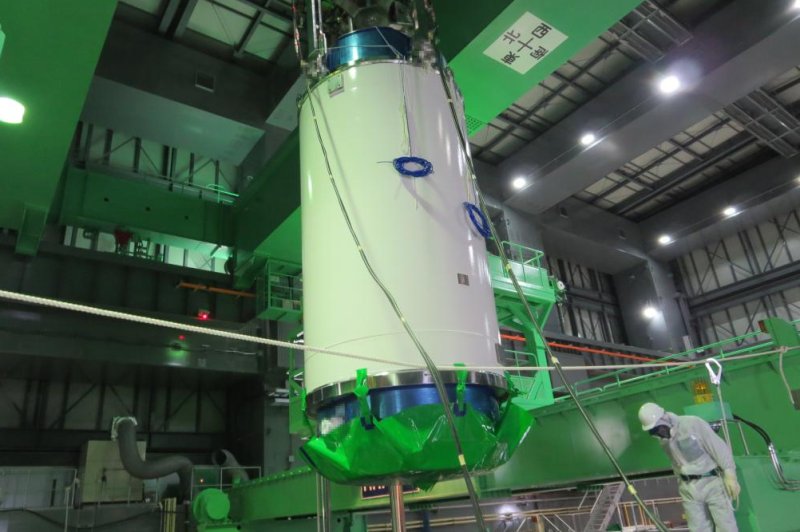Nov. 18 (UPI) -- Japan electric utility provider Tokyo Electric Power Company (Tepco) has completed day one of its year-long plan to remove spent fuel rods from the Unit 4 of the Fukushima nuclear plant.
The move marks an important step toward decommissioning the site, which the company said could take 30 years. After lengthy safety preparations, Tepco has removed 4 of the 22 fuel assemblies, each of which holds some 60 to 80 rods, and placed them in a cask.















